HashiCorp Certified: Consul Associate Certification
Register Services and Use Service Discovery
Introduction to Prepared Queries
Prepared Queries in Consul enable advanced service discovery by filtering instances based on health status, version tags, datacenter location, and more. Unlike basic DNS lookups, prepared queries let you define reusable query objects at the datacenter level and execute them via HTTP or DNS.
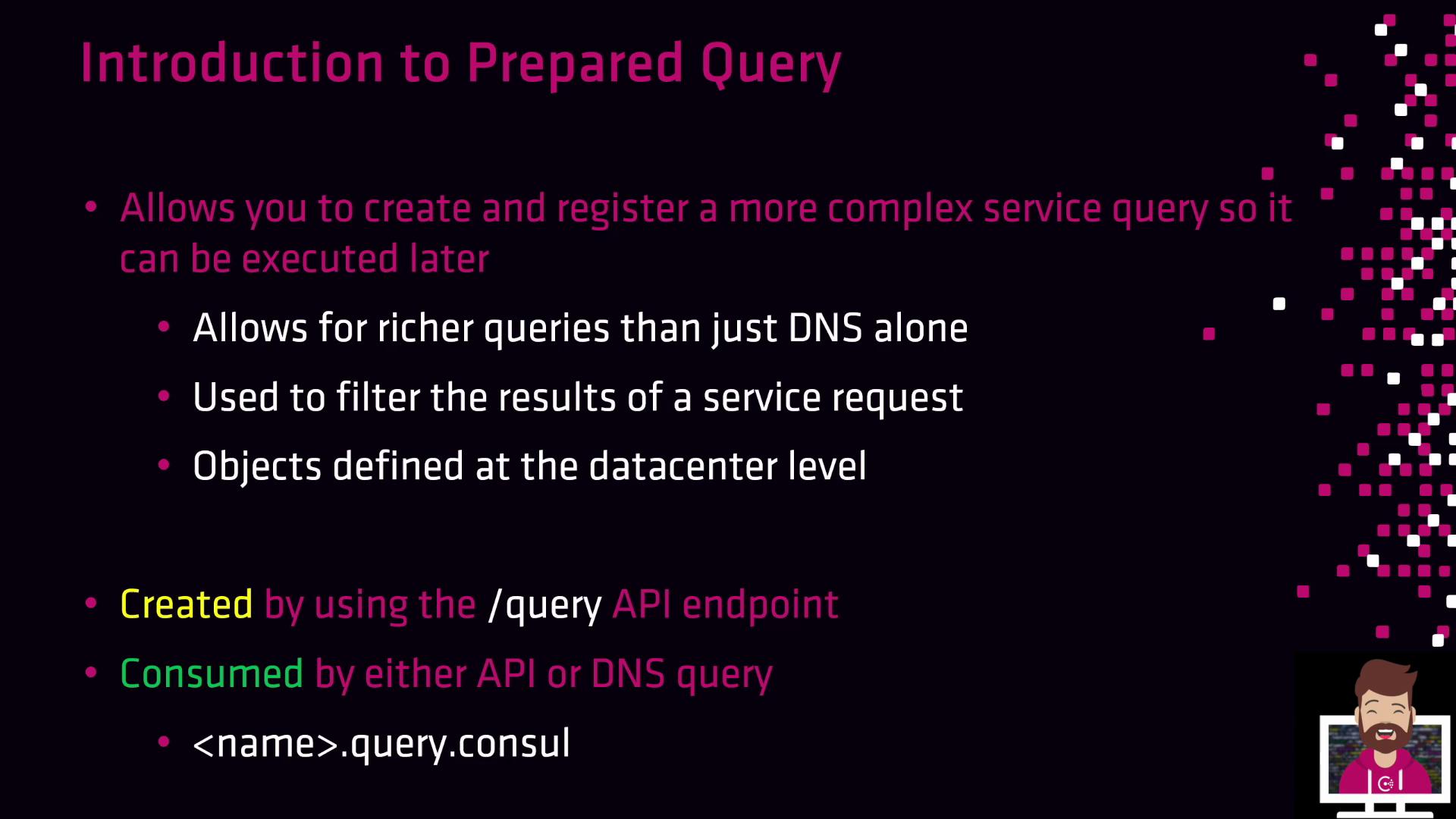
Defining and Executing a Prepared Query
Prepared Queries are stored in Consul’s catalog by calling the /v1/query API endpoint:
curl --request PUT \
--data @my-query.json \
http://localhost:8500/v1/query
Once registered, a query named my-query is available as:
- DNS:
my-query.query.consul - HTTP API:
GET /v1/query/<QueryID>/execute
Note
DNS queries to *.query.consul support standard A/AAAA record lookups and SRV records for service resolution.
Filtering Services: A Dealership Analogy
Imagine you visit a car dealership with thousands of vehicles. You only want:
- A car (not a truck)
- Painted red
- The latest model
By applying these filters, you narrow down the lot to your perfect match.
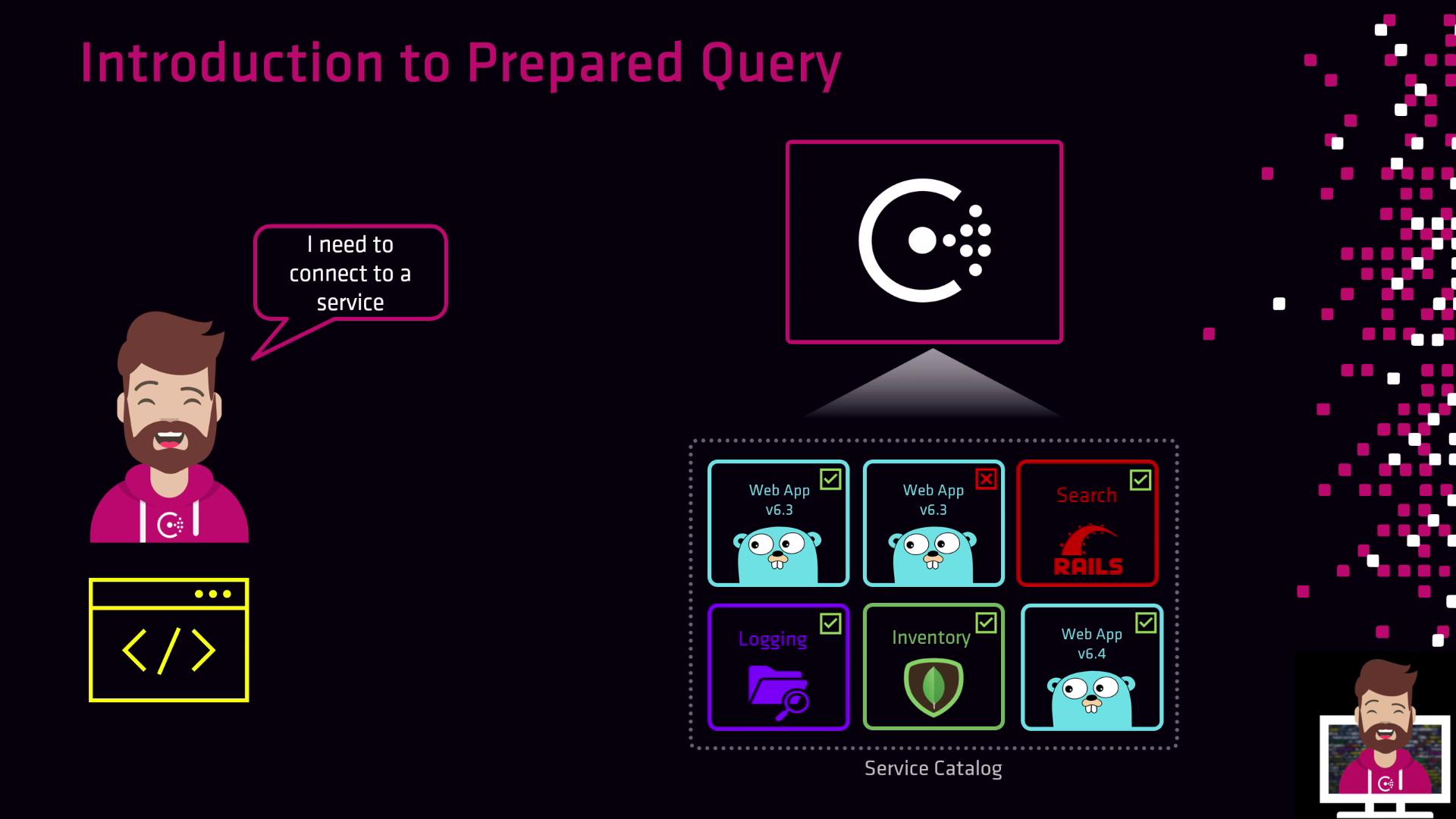
Similarly, a Consul client can request service instances and then filter by:
- Health: only passing health checks
- Service: e.g.,
web-app - Tags: e.g.,
v6.4
Example: web-app-v64 Prepared Query
Save the following JSON to web-app-v64-query.json:
{
"Name": "web-app-v64",
"Service": {
"Service": "web-app",
"Tags": ["v6.4"],
"OnlyPassing": true
}
}
Register it:
curl --request PUT \
--data @web-app-v64-query.json \
http://localhost:8500/v1/query
Now you can resolve web-app-v64.query.consul or call:
GET /v1/query/<QueryID>/execute
Multi-Datacenter Failover Policies
In federated environments, you may want your queries to automatically fail over to other datacenters if no local instances are healthy.
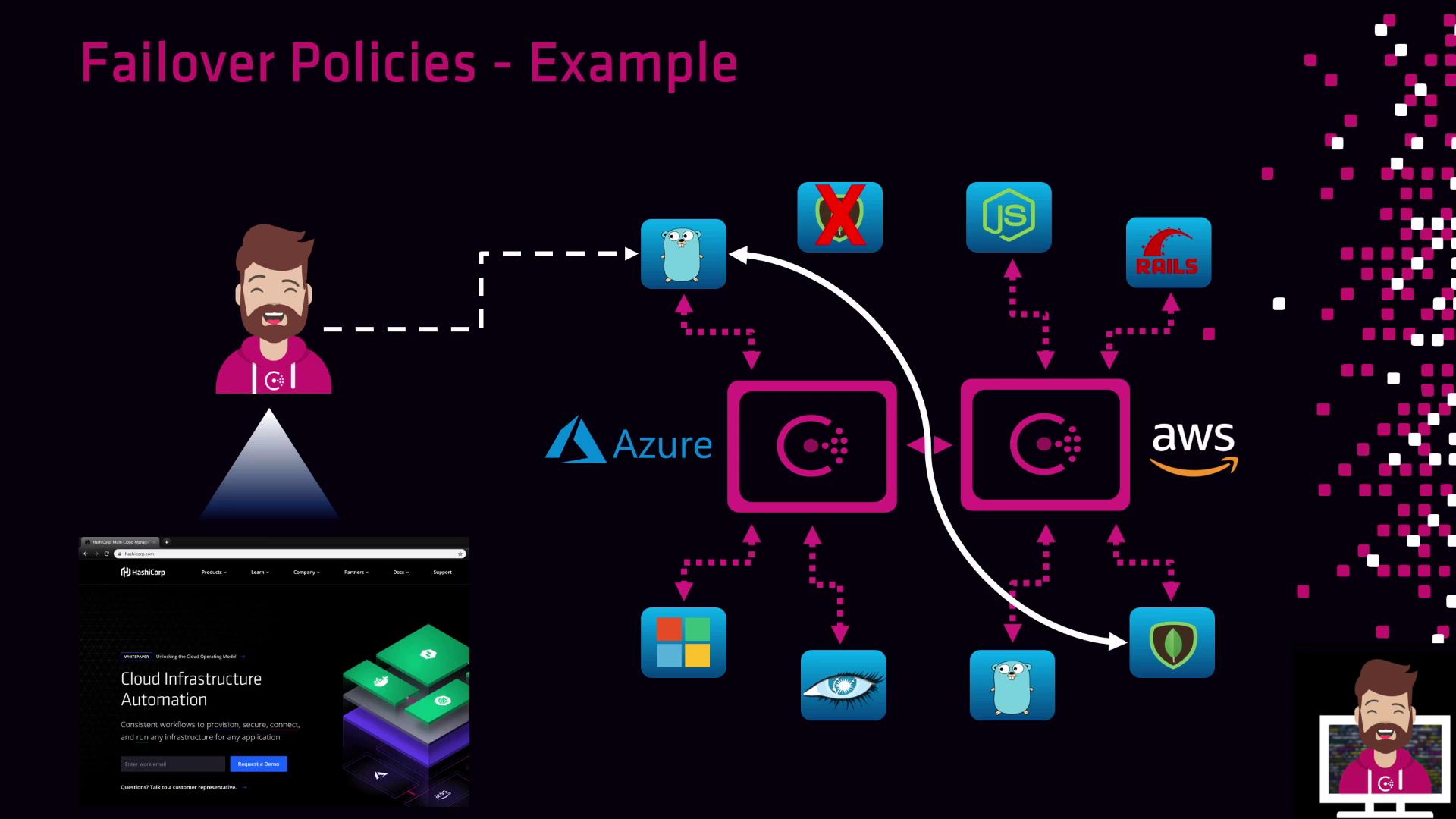
Failover Policy Types
| Policy Type | Behavior | Key Configuration |
|---|---|---|
| Static | Try a fixed list of datacenters in order | Datacenters |
| Dynamic | Automatically select the nearest N datacenters by round-trip time | NearestN |
| Hybrid | First nearest N, then fallback to a static list | NearestN, Datacenters |
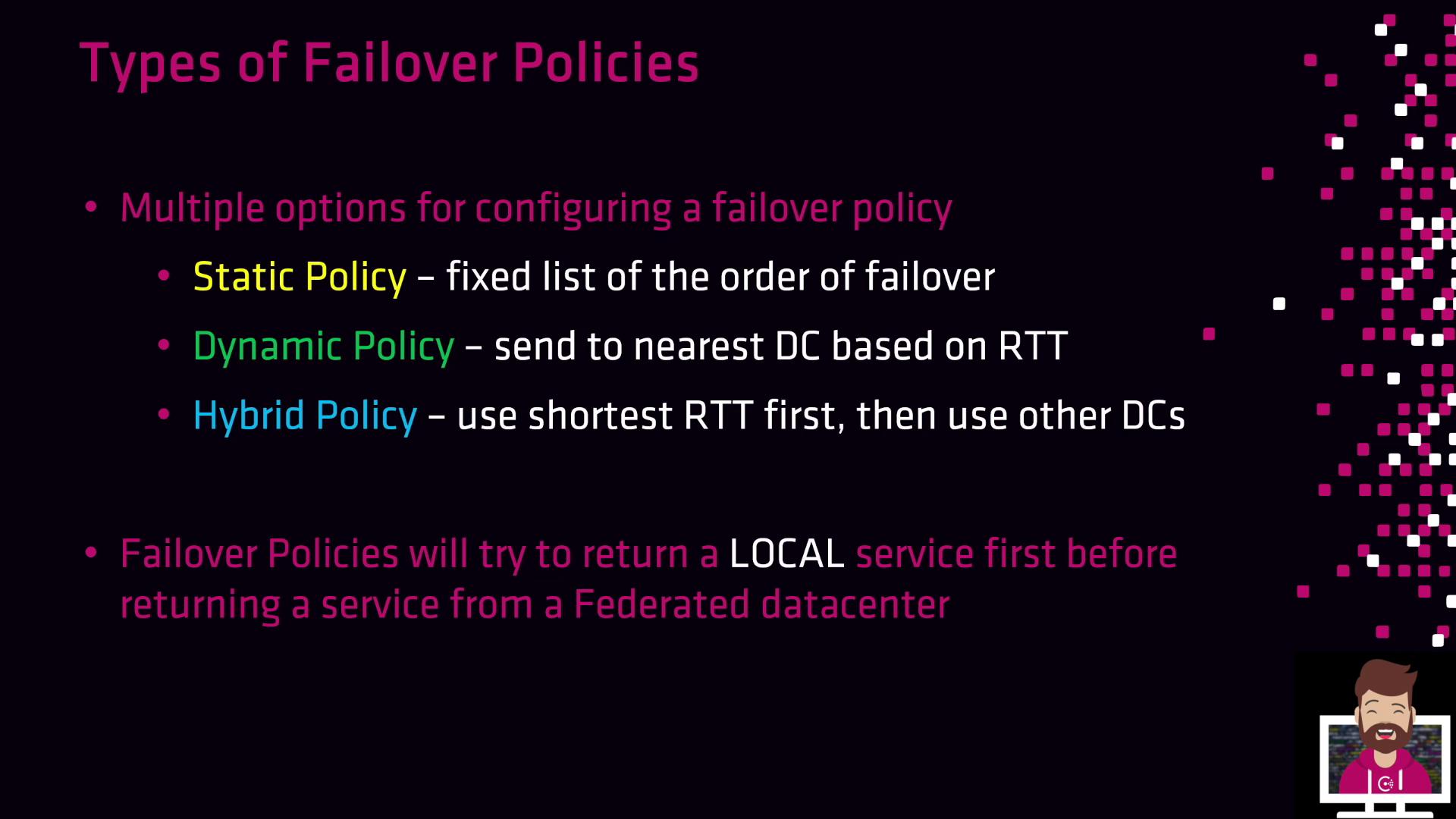
Static Failover Policy
{
"Name": "web-app-v64",
"Service": {
"Service": "web-app",
"Tags": ["v6.4"],
"OnlyPassing": true,
"Failover": {
"Datacenters": ["dc2", "dc3"]
}
}
}
Consul tries the local datacenter first, then
dc2, thendc3.
Dynamic Failover Policy
{
"Name": "web-app-v64",
"Service": {
"Service": "web-app",
"Tags": ["v6.4"],
"OnlyPassing": true,
"Failover": {
"NearestN": 2
}
}
}
Consul measures round-trip time and queries the two nearest datacenters if the local ones have no healthy instances.
Hybrid Failover Policy
{
"Name": "web-app-v64",
"Service": {
"Service": "web-app",
"Tags": ["v6.4"],
"OnlyPassing": true,
"Failover": {
"NearestN": 2,
"Datacenters": ["dc2", "dc3"]
}
}
}
Note
In a hybrid policy, each datacenter is queried at most once per execution.
Comparing Service Discovery Methods
Consul supports three main ways to locate services:
| Method | Advantages | Limitations |
|---|---|---|
| DNS | Built-in, simple round-robin | No health or metadata filtering |
| Prepared Queries | Filter by tags, health, metadata | Local datacenter only |
| Prepared Queries with Failover | All prepared query benefits + cross-DC failover | Requires federated topology configuration |
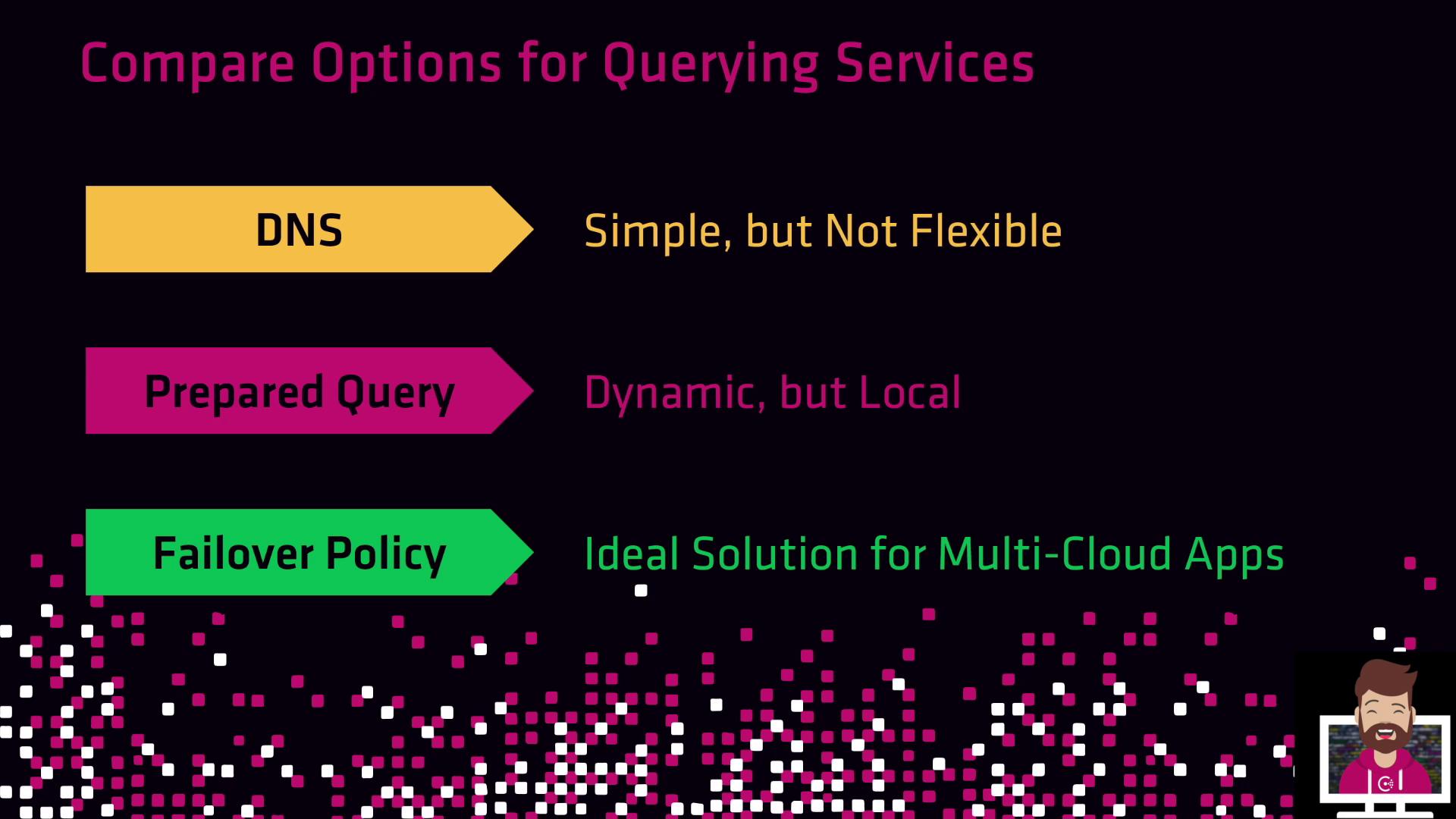
References
Watch Video
Watch video content